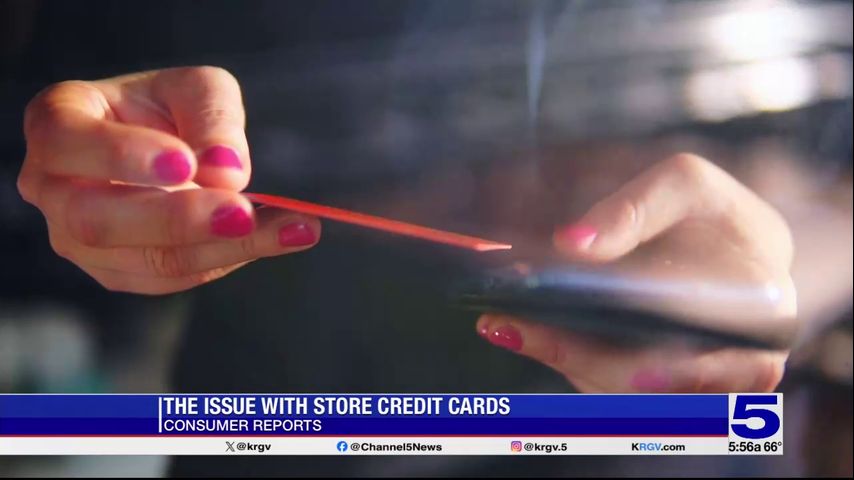Consumer Reports: The issue with store credit cards
The holiday shopping season is just around the corner. No doubt, among the hustle and bustle, you’ll be asked the same question over and over at checkout. Would you like to open a store credit card? Consumer Reports says to think twice before you sign the dotted line.
We’ve all been there. Before you swipe your credit card to pay, you’re told you can save even more –sometimes up to 20 percent off your purchase if you open a store-branded credit card right now. Should you take the plunge?
Generally, this is not a good idea. Sure, those upfront savings can be very enticing, but if you don't pay off that balance before a promotional period ends, you'll pay a lot of interest.
While the average credit card interest rate is around 20 percent, the interest rate for retail or cobranded credit cards is at an all-time high of 30 percent. And some are even higher.
Credit cards from TJX, JCPenny, QVC and Walgreens are almost 35 percent, while Burlington, Big Lots and Michael are almost 36 percent.
Most Americans carry a balance month over month – along with paying more money, that can impact your credit score.
So, is it ever a good time to consider signing up for a store credit card? If you shop at that store a lot and you're vigilant about paying off your balance every month or before a promotion ends.
Just be aware that many store-branded cards have low credit limits, so a big day of shopping for holiday gifts could max out the card.
Another thing to consider is that store-branded credit cards are sometimes easier to get than conventional credit cards. If you’re trying to build a credit history, these can be a good option if you commit to keeping a low or no balance.





